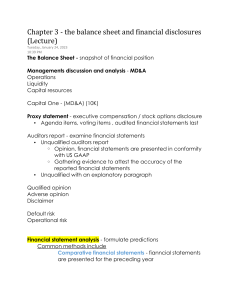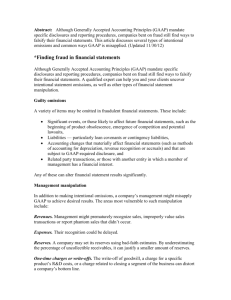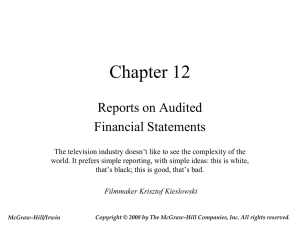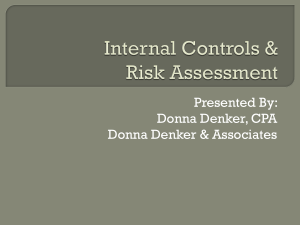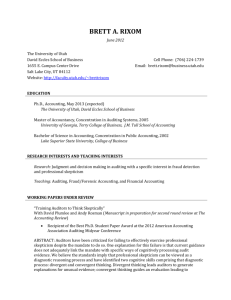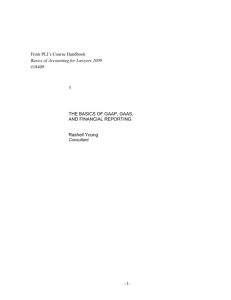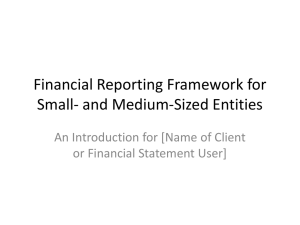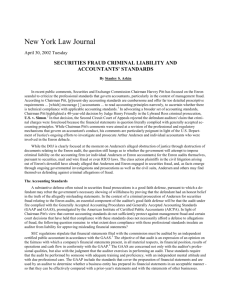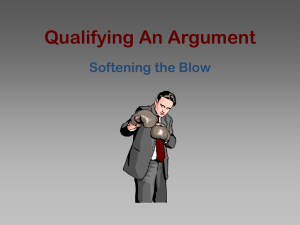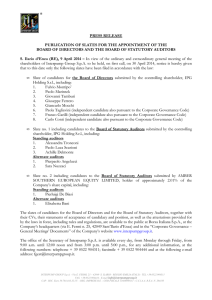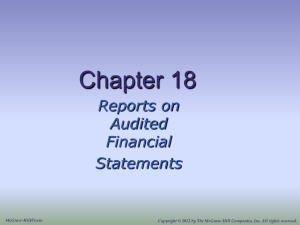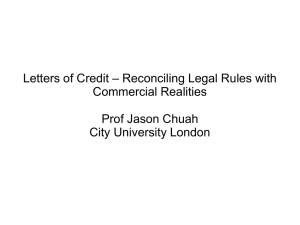ACCT 6300 Final Exam Review
advertisement
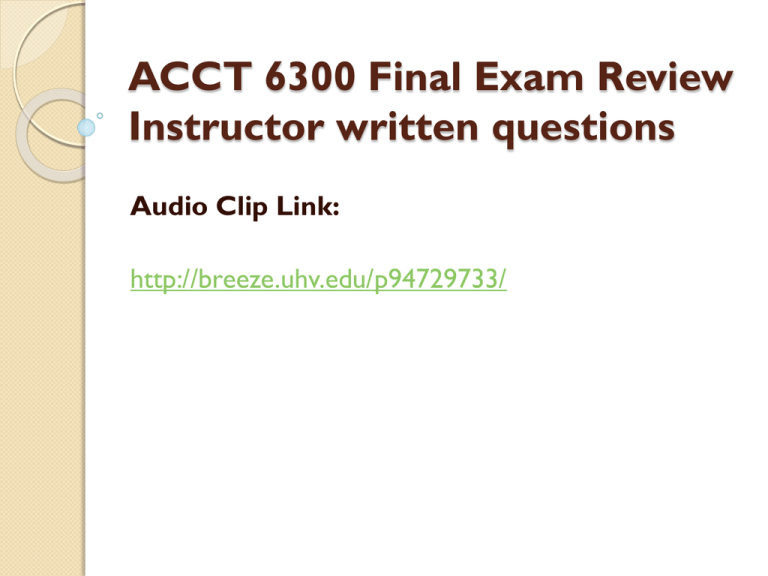
ACCT 6300 Final Exam Review Instructor written questions Audio Clip Link: http://breeze.uhv.edu/p94729733/ Chapter 5 Auditors’ Report Ten GAAS: TIP PIE ACDO Types of Fraud and the fraud triangle: Auditors’ Report Five types of opinions • standard unqualified • modified unqualified • ANGEL modifications still provide an unqualified opinion • Qualified: Material GAAP or GAAS problem • Disclaimer: highly material GAAS problem • Adverse: highly material GAAP problem Auditors’ Report Auditors’ Report • Three standard paragraphs for standard unqualified opinion: introductory, scope and opinion. • An explanatory paragraph (or languages) will be added if a standard unqualified opinion cannot be expressed. • Position of the explanatory paragraph • For qualified or adverse opinion: before the opinion paragraph • For modified unqualified opinion: after the opinion paragraph However, the explanatory paragraph can be either before or after the opinion paragraph: (a) Necessary GAAP Departure,and (b) Emphasis of a matter. Ten GAAS Mnemonics per Becker CPA review: TIP PIE ACDO Three general standards (TIP): Training Independence Professional Care Three field work standards (PIE): Planning and Supervision Internal Control Evidence Four reporting standards (ACDO) Accounting=GAAP Consistency Disclosure Opinion Accounting Fraud Types of Fraud ◦ fraudulent financial reporting (lying); ◦ asset misappropriation (stealing); ◦ corruption (cheating) Fraud triangle ◦ pressure/incentive; ◦ opportunity; ◦ rationalization/attitude Chapter 6 Auditors’ legal liability (exhibits 6.1 and 6.2 ; my extra notes) Regulatory obligations (general requirements) Auditors’ legal liability An auditor(accountant) could be held liable for : ◦ breach of contract: privity relationship. ◦ ordinary negligence: missed certain information or omitted a certain procedure ◦ gross negligence/constructive fraud: did not pay even minimal care, fail to follow GAAS/GAAP ◦ fraud: fraudulent or deceitful behavior or actions Disputes exist regarding whether an auditor (accountant) should be liable for a third party for ordinary negligence. Under common law, the courts have applied different approaches (exhibit 6.2) ◦ Four approaches adopted in four classic court cases privity<near privity<foreseen<reasonably foreseeable Statutory laws Securities Act of 1933: IPO Securities and Exchange Act of 1934: subsequent trading ◦ Annual financial statements should be audited and quarterly financial statements are reviewed Insider trading: ◦ directors, officers, and >10% shareholders should register with SEC and report their trading Other laws: PSLRA, SOX, FCPA, and RICO (just need to briefly know) Chapter 7 Earnings management (EM) ◦ inflate/deflate Earnings or EPS Materiality ◦ quantitative and qualitative factors Restatements ◦ voluntary or requested by SEC 7 common EM techniques (Shenanigans) 7 common EM techniques 1. 2. 3. 4. 5. 6. 7. Recording Revenue too soon or of questionable quality Recording bogus revenue Boosting income with one-time gains Shifting current expenses to a later or earlier period Failing to record or improperly reducing liabilities Shifting current revenue to a later period Shifting future expenses to the current period as a special charge Items 1-5: inflate earnings through overstatement of revenue and assets (1-3), or understatement of expense and liabilities (4 and 5). Items 6-7: deflate earnings through understatement of revenue or overstatement of expense. Chapter 8 GAAP vs. IFRS ◦ Rule vs. principle-based standards CG worldwide ◦ Germany, China, India IFCA code vs. AICPA code of professional conduct: quite similar Differences between international and US audit report ◦ True and fair vs. Present Fairly
